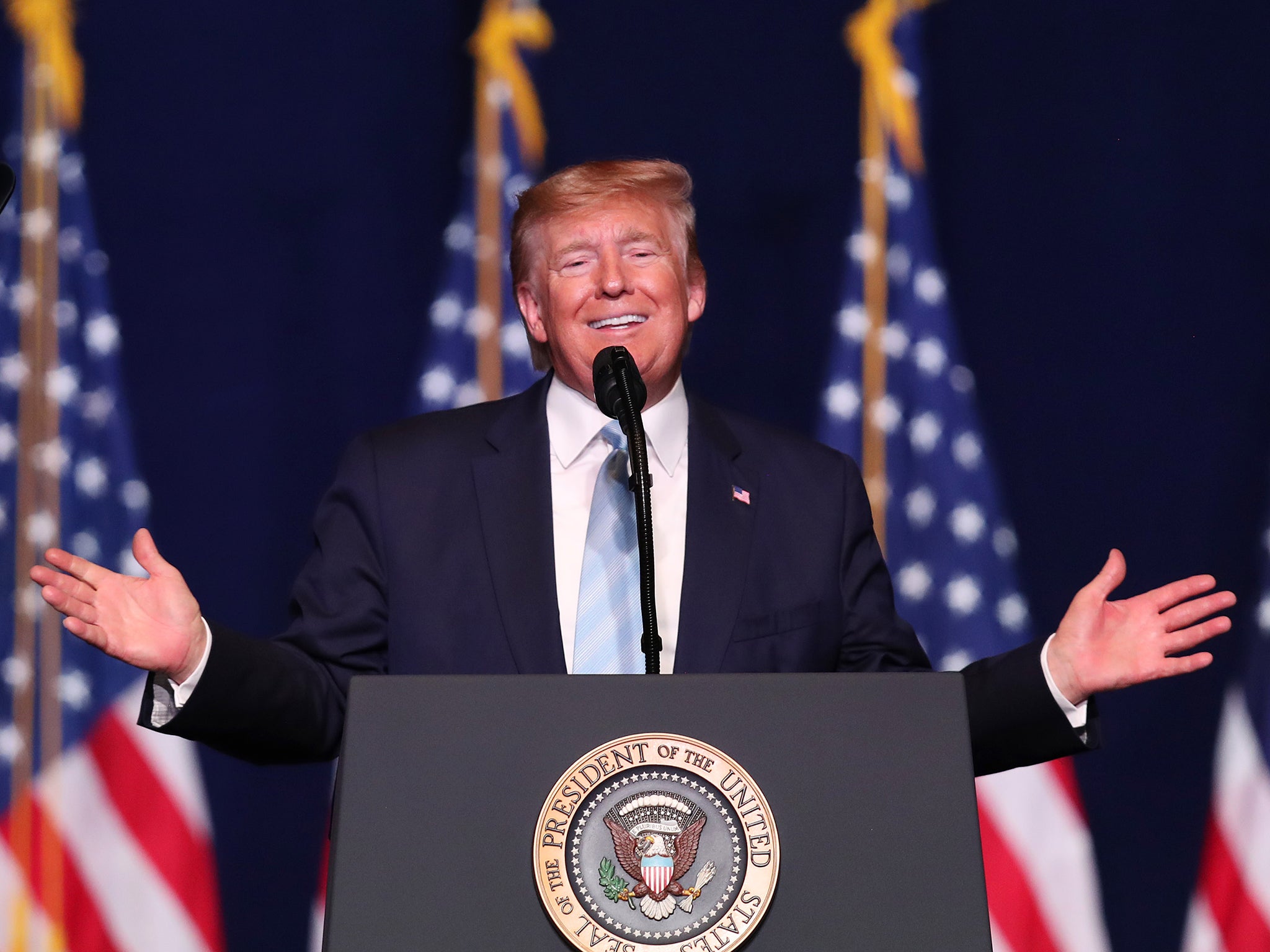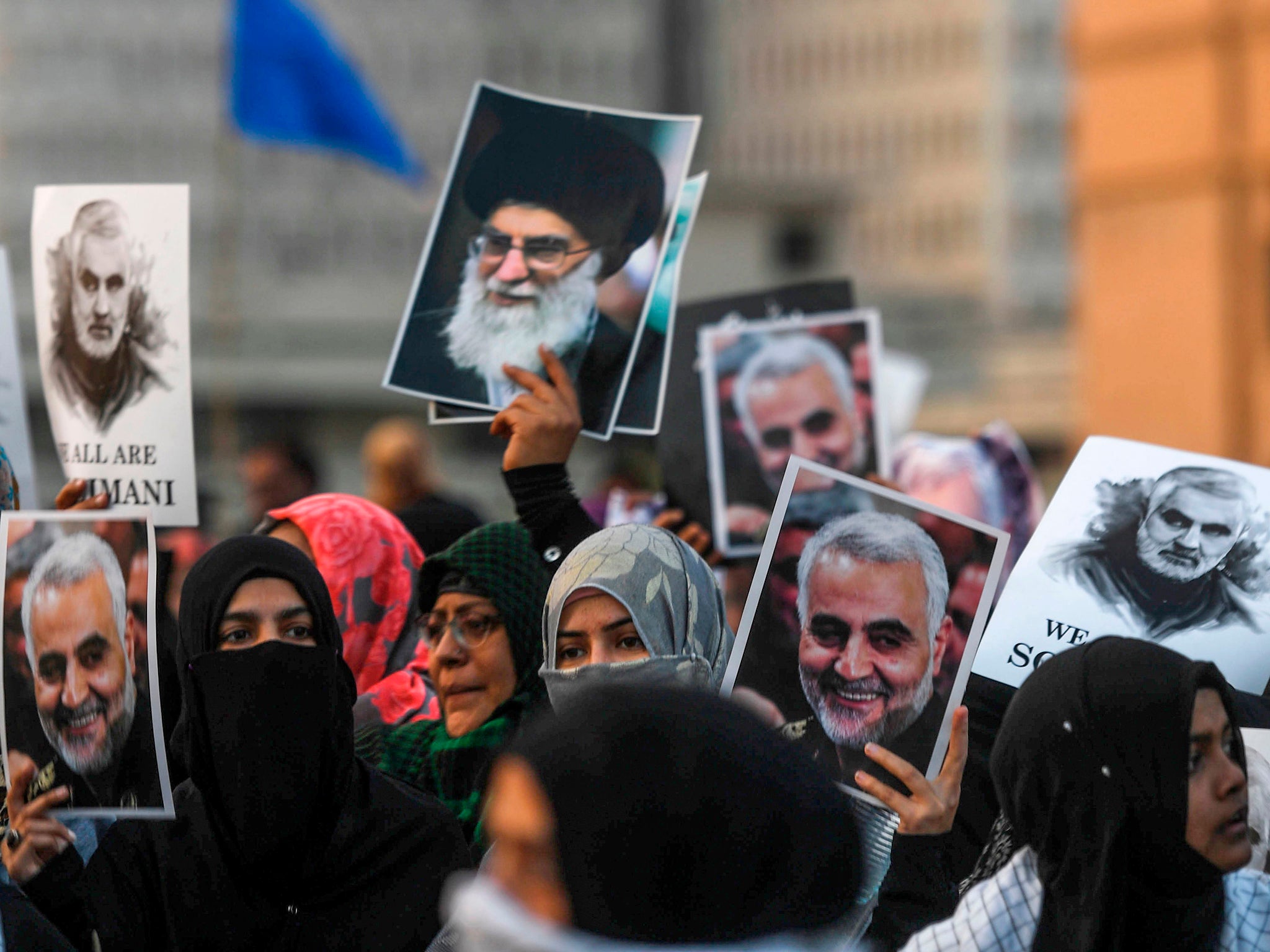Iran crisis: Pelosi announces war powers resolution vote to limit Trump action on Tehran
Speaker concerned president acting ‘without respect for constitutional authority congress has to declare war’

Speaker Nancy Pelosi said Sunday that the house will vote on a war powers resolution this week to limit President Donald Trump‘s military actions against Iran, warning that his order last week for a lethal strike against a top Iranian commander risked a serious escalation of tensions in the Middle East.
In a letter to Democrats, Ms Pelosi said the US action that killed Quds Force commander Qassem Soleimani was a “provocative and disproportionate military air strike targeting high-level Iranian military officials” that endangered members of the US military, diplomats and others.
Ms Pelosi said lawmakers were concerned that the Trump administration acted without consulting congress and without respect for the constitutional authority congress has to declare war.
She said the house will introduce and vote on a resolution similar to one that senator Tim Kaine introduced in the Senate last week.
“It reasserts Congress’s long-established oversight responsibilities by mandating that if no further Congressional action is taken, the Administration’s military hostilities with regard to Iran cease within 30 days,” Ms Pelosi said.
Freshman representative Elissa Slotkin, a former CIA and Pentagon analyst specialising in Shiite militias, will lead the resolution in the house.
The measure is likely to pass in the Democratic-controlled house and put Republicans on record on the issue, but it won’t go far in the GOP-led Senate.
Congress has struggled to write a new use-of-force resolution for missions in Iraq and Afghanistan, and Republicans have shown little interest in reviving the debate or challenging Trump.
“This is a military operation, it is not a legislative operation, and as such it is being conducted by the military commanders, including the commander in chief,” senator James Risch, chairman of the Foreign Relations Committee, which has oversight of war resolutions, said last week.
Still, a bipartisan group of lawmakers has seized on the military drone strike to spark a fresh discussion about the parameters for instigating military action.

“We’re now at a boiling point, and congress must step in before Mr Trump puts even more of our troops in harm’s way,” Mr Kaine said Friday in introducing his resolution.
Republican and Democratic presidents have applied the broad authority of the post-9/11 authorisation and the 2002 Iraq War resolution to multiple military operations, from Libya to Syria. The initial authorisation applied to those responsible for the 11 September 2001, terrorist attacks and any “associated forces”.

The letter from the speaker late Sunday came hours after Mr Trump claimed that his tweets are sufficient notice to congress of any possible US military strike on Iran, in an apparent dismissal of his obligations under the War Powers Act of 1973.
“These Media Posts will serve as notification to the United States Congress that should Iran strike any US person or target, the United States will quickly & fully strike back, & perhaps in a disproportionate manner,” Mr Trump tweeted from his Mar-a-Lago estate in Palm Beach, Florida, late Sunday afternoon. “Such legal notice is not required, but is given nevertheless!”
Mr Trump’s declaration was met with disbelief and ridicule from congressional Democrats, who called on the president to respect the role of the legislative branch in authorising new military action abroad.
The War Powers Act mandates that the president report to lawmakers within 48 hours of introducing military forces into armed conflict abroad.
Such notifications generally detail an administration’s justification for US intervention, as well as the constitutional and legislative rationale used by the administration to send troops.
It may also include how long the involvement could last.
On Saturday, the White House delivered a formal notification to congress of the strike that killed Soleimani, according to a senior Democratic aide and another official familiar with the matter who spoke on the condition of anonymity ahead of the notification.
Ms Pelosi criticised that document, which was entirely classified. “This document prompts serious and urgent questions about the timing, manner and justification of the Administration’s decision to engage in hostilities against Iran,” she said in a statement late Saturday.
The Washington Post
Join our commenting forum
Join thought-provoking conversations, follow other Independent readers and see their replies
Comments